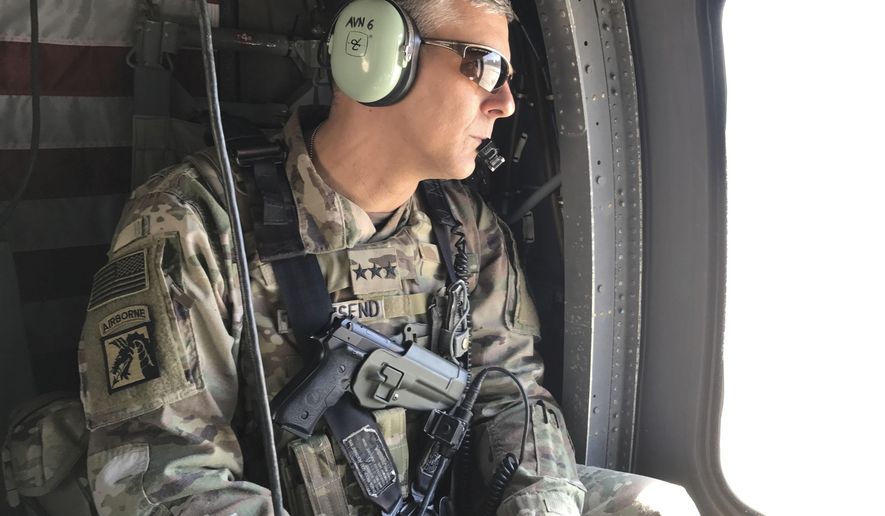Military commanders on Thursday faced mounting resistance on Capitol Hill to a tentative Pentagon plan to draw down U.S. forces in Africa, with lawmakers warning that jihadi groups are a large and growing threat in the region and that China and Russia are poised to fill any security vacuum as the U.S. pulls back.
Terrorist attacks across Africa have shaken weak governments and an assault by al-Shabab on a military base in Kenya recently killed three Americans, even as Defense Secretary Mark Esper has begun a review on how to transfer more forces and resources to Asia in a pivot to confront a rising China.
But key lawmakers peppered top U.S. African commander Gen. Stephen J. Townsend with questions about the rising threats and troop levels in Africa at a Senate Armed Services Committee oversight hearing.
“How much are you going to get accomplished with 6,000 people? You’re talking about the two areas where there aren’t enough people to reposition,” committee Chairman James M. Inhofe asked Gen. Townsend at one point.
The Oklahoma Republican has been joined by dozens of fellow lawmakers on both sides of the aisle, as well as France and number of U.S. allies, in urging the Defense Department to send additional training troops to the region in the face of the threat from a regrouping Islamic State and other jihadi groups.
Mr. Inhofe also noted that China has increased its troop presence in Africa by 70% over the last five years and currently has over 50 active port projects in the region, with “more on the planning board,” he added.
Rhode Island Sen. Jack F. Reed, the committee’s ranking Democrat, said a troop drawdown of the relatively small U.S. military footprint in Africa would not generate “meaningful investments” for the Pentagon’s other priorities.
While the U.S. and its allies have largely destroyed Islamic State’s physical “caliphate” in Syria and Iraq, private analysts and U.S. allies warn that Islamic State affiliates and other violent jihadi groups have been stepping up their activity in Kenya, Somalia and sub-Saharan nations such as Nigeria, Niger, Mali and Chad.
Gen. Townsend insisted his command remains closely attuned to the threat in the region, and said U.S. officials were seeing the first signs of cooperation between Russia and China to challenge Western influence in Africa.
The Esper review “doesn’t mean we’re going to zero,” he said. “We’re not leaving Africa, we’re not going to zero in Africa.”
Mr. Esper, briefing reporters at the Pentagon on Thursday, would not confirm a change in troop levels in Africa but left the door open to a potential drawback.
“I know the inclination is whenever somebody says ’review,’ the word that automatically pops up in their head is ’reduction.’ I like to say it’s a rebalancing,” he continued. “In some cases, we will increase, in some cases we won’t change, and in some cases we will decrease.”
— Mike Glenn contributed to this report.
• Lauren Toms can be reached at lmeier@washingtontimes.com.




Please read our comment policy before commenting.